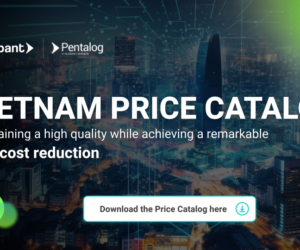Since November, we have launched into a competition process to find a mobile operator. For the past 4 years we have been with SFR and have reached the end of the contract period, and we have put them back into competition with other operators. This is the rule of our (certified) procurement process.We have just retained Orange at the conclusion of a selection phase on the basis of propositions followed by a phase of exclusive negotiations. To start this consultation, I worked with Mejdouline to analyze our practices and to determine what the profiles of our users are. We have 3 major categories: great nomads (x2), nomads (x4) and non-operating users (x16). This last category, even if it represents 3/4 of the fleet, is an insignificant part of the budget. We thus concentrated on the analysis and the needs of the other two categories.The categories of nomad users generally request roaming of voice and data and this is increasing constantly. The nomads are demanding more access to data (3G key). We therefore focused our needs on roaming and on the generalization of dual data access (computer + mobile phone). It is on these expenses that we have concentrated the greater part of our efforts.Then we had to answer the question “iPhone or no iPhone? It is true that we can wonder about its autonomy, its fragility and its security level. But in comparing the other terminals presently available, the answer is clear. Symbian is late. Windows Phone is too early, as is Android. The only alternative was the BlackBerry but it does not reach the level of user friendliness of the iPhone. For the past 6 months, I have personally used an iPhone that allowed me to validate its integration into a Pentalog environment. I really have not been disappointed with its user friendliness, its speed, and its simplicity. The choice has thus been made, the entire population of nomads will be equipped with a 3GS 16GB iPhone.Previously, the terminals were managed by the Administrative & Financial Service. We had already agreed that this team would continue the management of the terminals at the time of the change-over in the contract. These terminals are now managed just like computers are (inventory, configuration management, emergency stock). We are presently defining the operational procedures of the iPhone as Romania and the Republic of Moldova are already equipped with iPhones. Users will not be able to do what they want with their iPhones. We will deploy profiles on the iPhone to manage their configurations (list of Branches wifi access points, mail settings…). Even if management tools have not yet reached a very satisfactory level, we found the management of the profiles has reached the minimum of our expectations.With the same activities, we reduced our budget by approximately 9%. The simulation of roaming voice traffic over the past few months applying Orange tariffs showed a reduction of 10%. As we become better equipped to follow our consumption data, we estimate the budget reduction will be approximately 400%. It is this sector that we will realize the most important part of our savings. In any case, we will organize ourselves to monitor our consumption, to better manage our budget where the options of automatic adaptation of the offer do not exist.I still would like to make the observation that Orange did not come to us and propose a global offer. Has Globalization not yet arrived here? Indeed, wherever we operate (Romania, Moldova) Orange is already our mobile solution provider. It is in and around these countries that we do the most roaming. Orange is not able to operate networks to offer a global solution. In order to limit the impact of this lack of service, we will set up our own VPN with our Centrex which already covers France and Romania. Other countries will follow. An iPhone application is already under consideration right now.For their part SFR only updated the offer we had on our fleet without taking into account the actual evolution of our needs. Too bad, because the competition was completely open.In conclusion, Orange has done what it took to answer our main concerns. Until 2001, we were 100% FT and for the last 4 years we were almost 0% Orange. There are still some analog lines (fax, backup…). But our needs have been understood by Orange and they have provided the products adapted to these needs.









